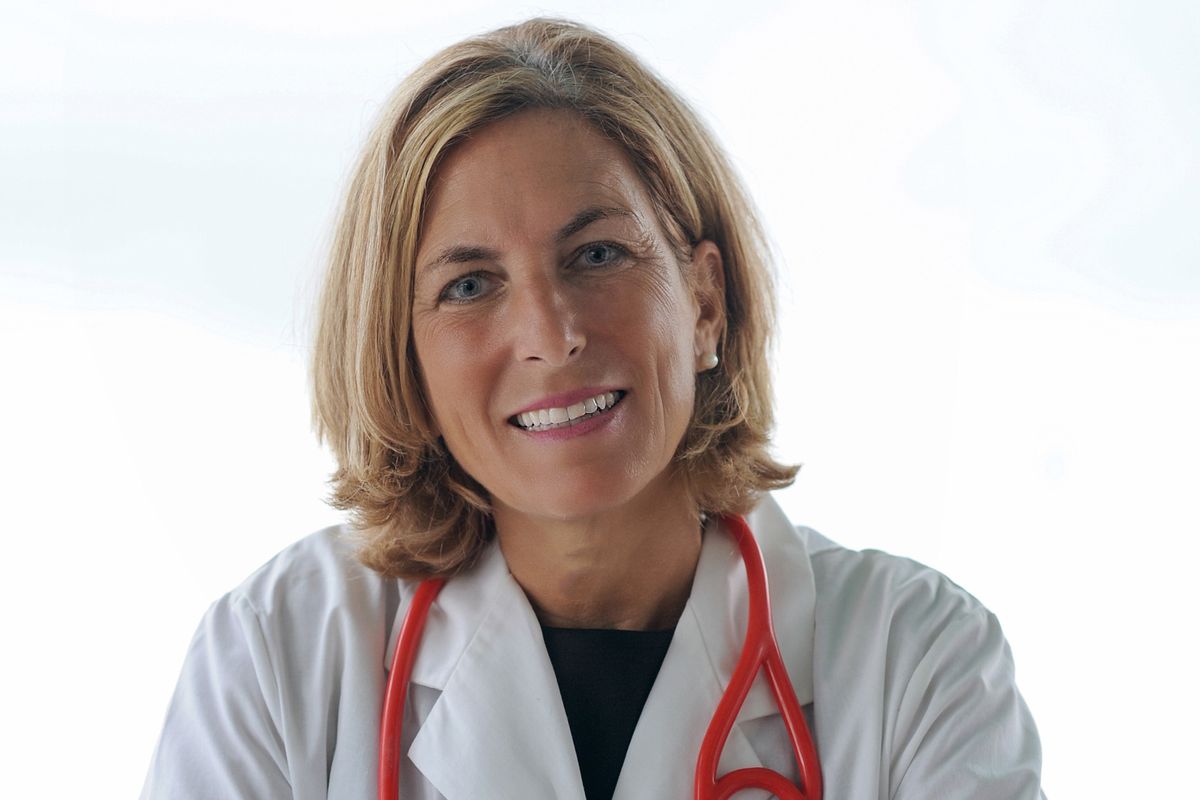When I was a girl in the 1970s, my best friend's mom, Ginger* was diagnosed with breast cancer. Back then, treatment was typically a radical mastectomy followed by chemotherapy and radiation. My friend's mother lived through the treatment, but the cancer returned and metastasized (spread) to her lungs.
In the '80s and '90s research continued to advance, new treatments became available, and Ginger was able to see her three amazing daughters graduate from high school and college. She was also there to plan their weddings and to welcome five beautiful grandbabies into this world. She made her mark on me and all of Michele's friends and showed us how amazing women can be. Ginger was my hero, I absolutely loved and adored her and still do. She was also a nurse — and she inspired me to become one as well.
That experience taught me something, both as a woman and as a nurse. Being diagnosed with an incurable cancer is scary and can feel overwhelming, but that doesn't mean it's hopeless. While scary and extremely challenging, research and new treatment options are giving people with metastatic cancer the opportunity to live longer and more active lives.
Metastatic breast cancer
Metastatic breast cancer (MBC, also known as stage 4) is breast cancer that has spread to another part of the body, such as the liver, brain, bones or lungs. It usually develops months or even years after a person has been diagnosed and completed treatment for breast cancer.
About 30% of women diagnosed with early-stage breast cancer will develop metastatic disease, while 6% of women already have MBC by the time they are first diagnosed. As of 2017, in the United States alone, there were an estimated 168,000 women living with MBC.
We need to educate women about the symptoms of MBC and bring more awareness to the importance of early diagnosis. It's important to note that it's not only women over 40 who are at risk for MBC, but younger women as well. Symptoms of MBC vary depending on where the cancer has spread.
Bone metastasis: The cancer most often spreads to the ribs, spine, pelvis or the long bones in the arms and legs, and can be accompanied by a sudden new sharp pain. The pain may come and go at first and then become consistent.
Lung metastasis: Symptoms may include shortness of breath, wheezing, cough (with or without blood and mucus) and pain. The symptoms can mirror a cold or upper respiratory infection, but if they persist for more than a week, see your healthcare provider.
Brain metastasis: Seizures, headaches, memory problems, mood or personality changes, slurred speech (and other changes to senses controlled by the brain) and stroke can all signal brain metastasis.
Liver metastasis: Because cancer that spreads to the liver often doesn't present symptoms, it's generally found through blood tests. When symptoms are present, they can include fever, weight loss or poor appetite, bloating, fatigue, swelling of the legs, pain in the midsection and a yellow tint to the whites of the eyes or skin.
In all cases, if you are a breast cancer survivor and experience any of the above symptoms, or feel something is not right, it's best to get it checked out.
It's important for women to understand that there is a lot of research happening and there are treatment options that have improved — and are continuing to improve — survival time. Roughly one-third of women in the U.S. live at least five years after diagnosis, and some women may live 10 years and even more beyond their MBC diagnosis.
Additionally, women with MBC should be aware of the clinical trials being conducted in new treatment options. The National Institutes of Health offers a tool at clinicaltrials.gov, where users can search trials by specific disease and geographic location. It's important for women to join these trials, particularly women of color and of all ages.
Looking back, I imagine being diagnosed with an incurable breast cancer must have been really frightening for Ginger, particularly since there were so few support networks and resources available to women. Luckily we've come a long way in the past 50 years.
Regardless of the type of breast cancer diagnosis you receive, along with seeking the best medical treatment, it's vital to map out your plan for living with the disease. Reach out to your healthcare provider with questions, look for support groups, talk to your friends, and take advantage of the multiple online resources available, including us at HealthyWomen.
Above all, remain hopeful.
This resource was created with support from Daiichi Sankyo and Sanofi Genzyme.
Resources
BreastCancer.org
Susan G. Komen
National Breast Cancer Foundation
Bright Pink
- Building a Dream Team to Fight Metastatic Breast Cancer ›
- New Treatments for Metastatic Breast Cancer ›
- My Life Really Began When I Got My Breast Cancer Diagnosis - HealthyWomen ›
- Where Metastatic Breast Cancer Can Spread in the Body - HealthyWomen ›
- With Metastatic Breast Cancer, I Can’t Control Much — but That Only Makes Me Fight Harder for a Cure - HealthyWomen ›






